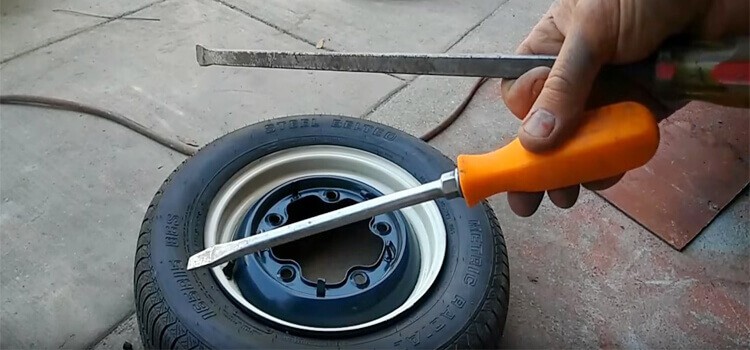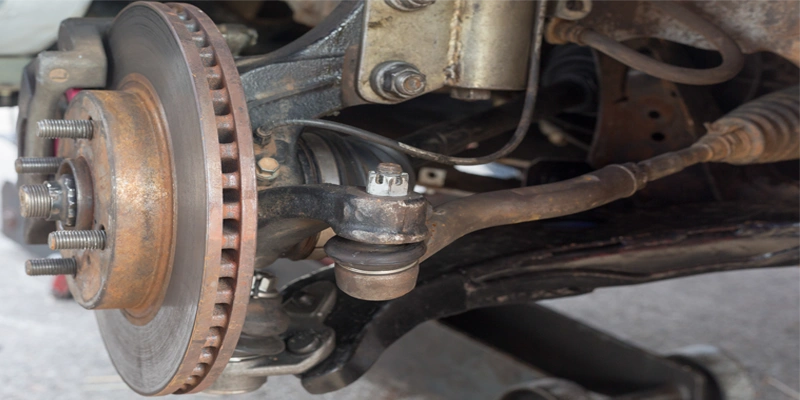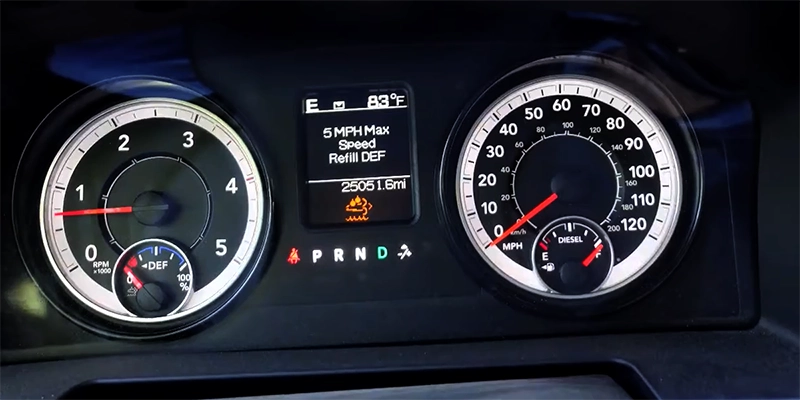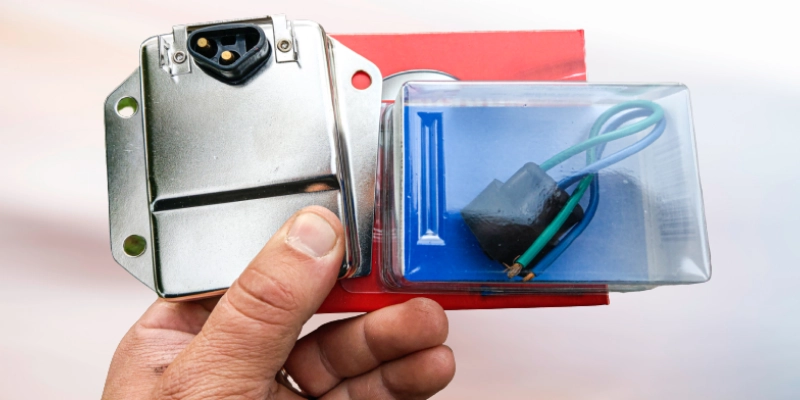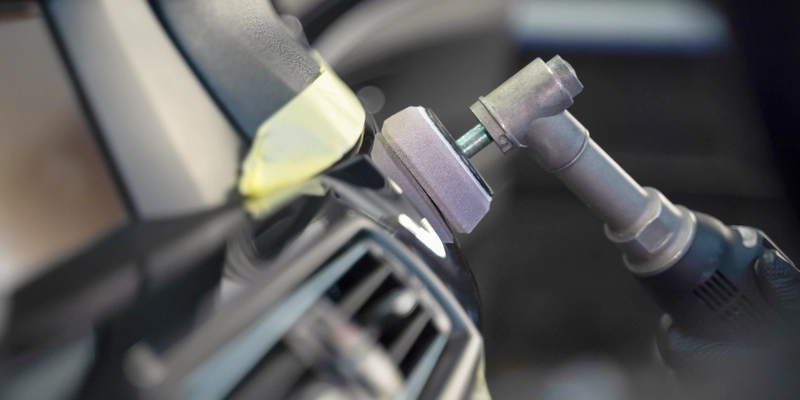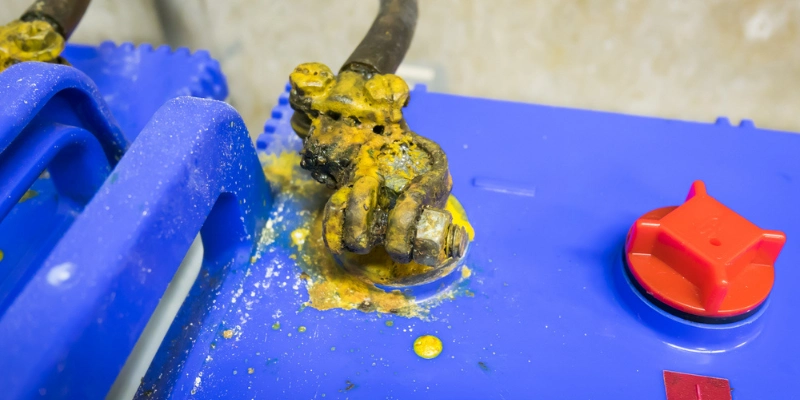Key Takeaways
- Drilling holes in a catalytic converter can have negative environmental impacts, including releasing toxic gases and increasing pollution levels.
- Tampering with a catalytic converter can result in legal consequences and failing emission tests. There are better alternatives for improving performance, such as unclogging the converter.
- Identifying signs of a bad catalytic converter, such as reduced engine performance and unusual sounds, can help prevent further damage. Proper maintenance can help extend the life of the converter and reduce environmental harm.
The catalytic converter is an essential component in a car’s exhaust system, and it plays a critical role in reducing harmful emissions and pollutants.
This device converts toxic gases into less harmful emissions through a chemical reaction, ensuring that the environment remains clean.
It is crucial to understand the critical role that the catalytic converter plays in your car’s exhaust system to maintain its efficiency and effectiveness.
The device contains precious metals such as platinum and palladium, which catalyze the conversion process, making it more efficient and effective.
A hole in the catalytic converter can lead to increased emissions, reduced fuel efficiency, and potential harm to your car’s engine.
In addition, a damaged catalytic converter can cause reduced performance, loud noises, and a decrease in overall power.
Regular maintenance and inspections can help to detect any issues with the catalytic converter before they cause significant harm to your engine and the environment.
However, in case of damage, it is crucial to have it repaired or replaced by a qualified technician.
It is essential to ensure that the replacement catalytic converter meets the required emission regulations for your area to avoid any legal issues.
With proper maintenance, inspections, and driving habits, such as avoiding harsh driving conditions or overloading, you can prolong the life of the catalytic converter and avoid any unwanted damage.
Why Drilling Holes in a Catalytic Converter is Not Recommended
Catalytic converters are essential components in automobiles that reduce harmful emissions. However, it is not advisable to drill holes in them, as doing so can have adverse effects.
Holes in the converter can disrupt the flow of exhaust gases, reducing its ability to filter pollutants and increasing air pollution.
See More: Environmental Implications of Catalytic Converters
It can also result in decreased fuel efficiency and tampering with catalytic converters is illegal in many states.
To ensure optimal performance, it is important to maintain and replace catalytic converters regularly.
Repairing holes in the converter is not a viable solution, as it can cause further damage and increase the risk of harmful emissions.
Seeking professional help is advisable in case of any issues with the catalytic converter.
Drilling holes in catalytic converters is not recommended, as it can cause legal trouble and significant financial loss.
One car owner who drilled holes in their converter to increase power output faced heavy fines and had to replace the entire unit.
Therefore, it is crucial to understand the importance of catalytic converters and avoid drilling holes in them.
How to Punch Holes in a Catalytic Converter
Punching holes in a catalytic converter is not recommended, as it can have detrimental effects on both the environment and vehicle performance. However, if you do need to punch holes in a catalytic converter, there are certain steps you should follow to minimize any negative impact.
First, ensure that the vehicle is turned off and the exhaust system is cool to prevent injury.
Then, locate the catalytic converter and carefully punch small, evenly spaced holes throughout the converter using a metal punch or drill.
Remember to reinstall the converter onto the vehicle once you are done.
It is important to note that punching holes in a catalytic converter is illegal and can result in hefty fines.
Moreover, it can worsen emissions, which can harm both the environment and your health. Over time, it can also cause damage to the engine and exhaust system, resulting in expensive repairs.
Therefore, it is best to have a damaged catalytic converter repaired or replaced by a professional to avoid hazardous emissions and poor vehicle performance.
Pro Tip:
If you suspect that your catalytic converter is damaged, take it to a professional rather than attempting to fix it yourself. This can prevent further harm and ensure the proper functioning of the system.
Signs of a Bad Catalytic Converter
The catalytic converter plays a crucial role in reducing car emissions and is an integral part of the exhaust system.
However, if there is a hole in the catalytic converter, it can lead to various issues, including decreased performance, harmful emissions, and potential safety hazards.
One of the most noticeable signs of a bad catalytic converter is reduced performance, which can include decreased acceleration, power, and efficiency, as well as stalling.
This issue can have a significant impact on the car’s overall functioning.
Moreover, if the catalytic converter is not functioning correctly, it can lead to increased emissions that can negatively impact the environment and human health. The car may fail emissions tests, leading to potential fines.
Read Also: Health Risks from Vehicle Emissions
A hole in the catalytic converter can lead to safety hazards, such as the risk of a fire. The heat and emissions produced by the car can ignite nearby materials or result in a fire in the engine compartment.
To avoid such issues, it’s crucial to have your catalytic converter inspected regularly to ensure proper functioning. Neglecting this component can result in not only costly repairs but also environmental harm and safety hazards.
A well-known incident that highlights the importance of proper handling and disposal of catalytic converters occurred in 1992.
A transport ship carrying thousands of catalytic converters caught fire and caused significant damage to the environment. Regular maintenance can help avoid such uncontrolled incidents.
Five Facts: Hole in Catalytic Converter
- ✅ Drilling holes in a catalytic converter can allow toxic gases to leak out, polluting the environment and potentially causing harm to human health.
- ✅ The catalytic converter is designed to reduce pollution in a car’s emissions, and punching holes in the converter can result in the engine not running properly.
- ✅ Toxic gases are odorless and colorless, making them difficult to detect, and drilling holes in the catalytic converter may cause emissions tests to fail.
- ✅ A catalytic converter with holes can allow trapped gases a means of escape and potentially solve problems caused by clogging.
- ✅ Signs that a catalytic converter has gone bad include jerking, stalling, and fuel loss during acceleration, as well as a rattling noise.
FAQs
What happens if there is a hole in a catalytic converter?
Can I drill holes in my catalytic converter to increase performance?
What can happen if I try to drill holes in my catalytic converter?
Is punching holes in a catalytic converter a recommended solution for a clogged converter?
Can carbon buildup cause a hole in a catalytic converter?
What is the catalytic converter and what is its purpose?
Final thoughts
Proper maintenance of your catalytic converter is essential for both the efficient functioning of your vehicle and the environment.
A hole in the catalytic converter can cause a decrease in fuel efficiency and an increase in harmful emissions.
Regular maintenance of your vehicle’s exhaust system can prevent these issues from occurring, including replacing worn-out parts and fixing any leaks or damages early on.
This not only increases the lifespan of your catalytic converter but also reduces harmful emissions that can harm both you and the environment.
It’s important to note that catalytic converters contain precious metals such as platinum, rhodium, and palladium, making them valuable and a preferred target for thieves.
To avoid damage or theft, it’s recommended to park your vehicle in secure areas and invest in anti-theft devices.
 Skip to content
Skip to content
